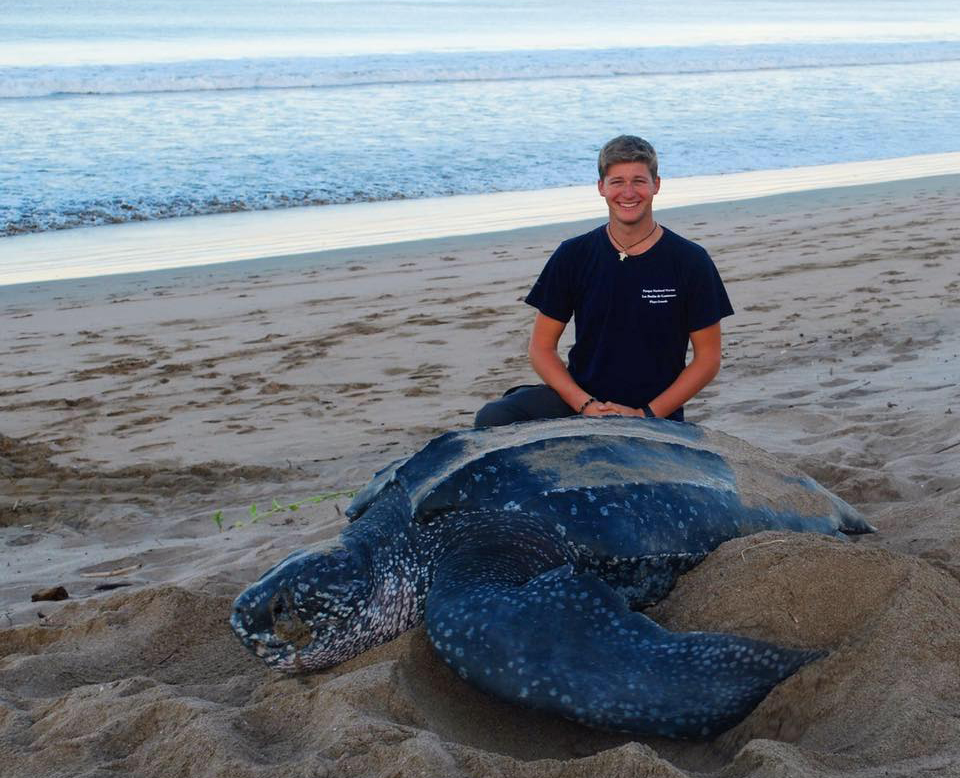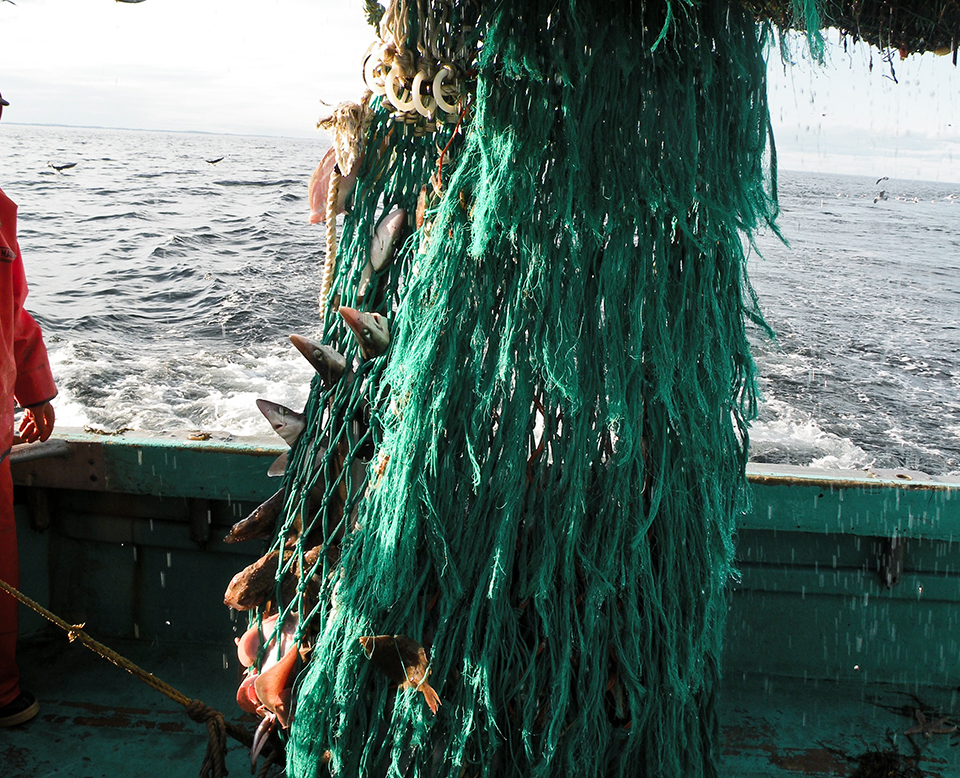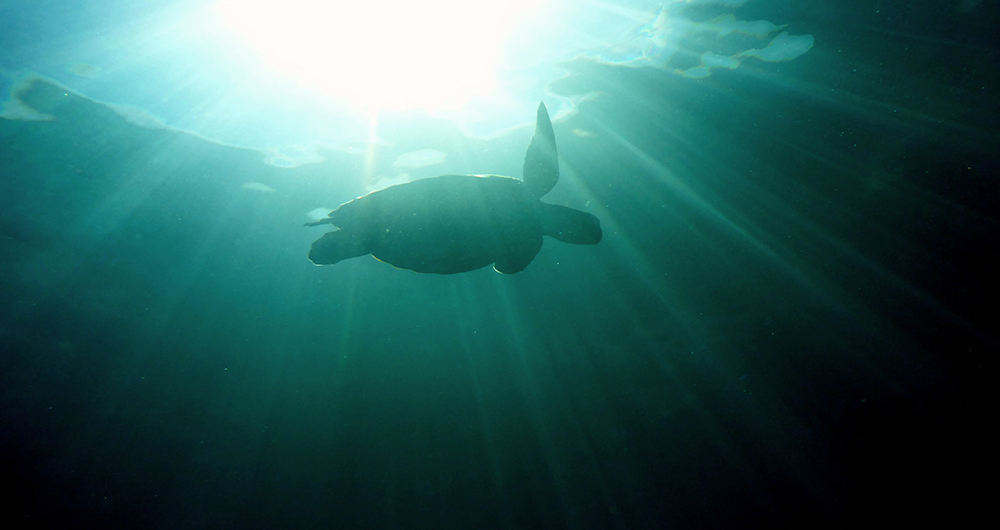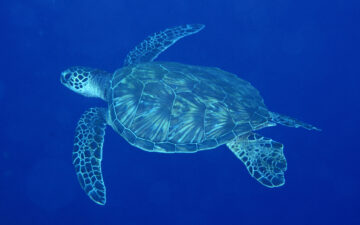The Boyd N. Lyon Sea Turtle Fund was established in honor of Boyd Lyon, a true ocean hero. Boyd dedicated his life to sea turtle conservation and protection. The scholarship Committee Advised Fund provides an annual scholarship to a marine biology student whose research is focused on sea turtles. This year, Quintin Bergman is the recipient. We were able to catch up with Bergman (virtually of course) while he was in the field studying nesting sea turtles.

Quintin Bergman with a Leatherback turtle (Credit: Quintin Bergman, Boyd Lyon Sea Turtle Fund)
Could you describe your work with sea turtles?
My first experience working with sea turtles was in Costa Rica in 2016, working as a field biologist for The Leatherback Trust. From that experience I was then hired in Greece to work with Global Vision International. Up to this point I have seen and worked with leatherbacks, olive Ridley turtles, green turtles, loggerhead turtles, and hawksbill turtles. I wish to continue working with the conservation of sea turtles, this project will teach me a lot about the behaviors of hawksbill that will aid in their continued protection in Costa Rica.
What sparked your interest in sea turtles and marine conservation?
I grew up in the middle of the United States; many hours’ drive from the closest ocean. I have always enjoyed being around the ocean during family vacation to the Gulf of Mexico. When the opportunity arose to work with these amazing animals I immediately got involved. There are still many questions biologists haven’t answered about these animals so it is important that we continue to monitor the populations and learn as much as we can from these incredible species.
What’s one thing you’d like the general public to know about sea turtles or sea turtle conservation?
In my opinion, any person looking to help sea turtles should reduce or stop the use of plastics, especially single use plastics. Plastic pollution is a major issue concerning sea turtles and other sea life. Trash on beaches make it difficult for turtles to nest properly and plastic in the ocean is mistaken for food and the turtles end up eating plastic. No matter where a person may live please think about the plastic you use, where it ends up, and look for alternative materials. The turtles and all ocean life thanks you! In addition, sea turtles have an incredible life! Many species eat a specific diet and migrate huge distances between foraging grounds and nesting beaches. When a person visits the beach be sure to check with wildlife authorities if nesting turtles are present in your area. They haul themselves out of the ocean at night and dig a hole for their eggs. Bright, white, artificial lights near beaches will disrupt adult turtles and their hatchlings. Using red light bulbs will allow people to see in the dark just fine and are turtle friendly. If a person ever encounters a sea turtle on the beach or water, remember they are wild animals and should be observed at a distance with respect.
What’s the biggest threat to sea turtles today?
By-catch and Trawling. By-catch (noun): the unwanted fish and other marine creatures caught during commercial fishing for a different species. Trawling ships and long line fisheries accidentally catch many sea turtles in their fishing equipment which lead to the death of many turtles. Parts of the world have little or no fishing regulations that protect endangered species. When shopping for or ordering seafood ask where your food is coming from, how is it caught, how sustainable is it?

By-catch off the coast of Massachusetts (Credit: Austin Gallagher/Marine Photobank)
What advice would you give to students looking to go into the marine conservation field?
Getting started in the marine conservation field can be tough and may require you to travel away from home. Starting out you will have to volunteer and work unpaid, with a degree based in biology or environmental science you can start getting expenses covered leading to a paid job. It’s hard but important work that is really rewarding. You won’t go anywhere unless you apply.
What do you love about the ocean?
Growing up in a landlocked state and surrounded by forests I learned everything I could about my surroundings. Once in and around the ocean I realized how much of it is a completely different world. We as a society take most of it for granted, and don’t realize how much the ocean does for us. Learning all the intricacies of the marine system has been astounding for me.
To read more about Quintin’s work, check out his full bio on the Boyd Lyon Sea Turtle Fund Scholarship page.






